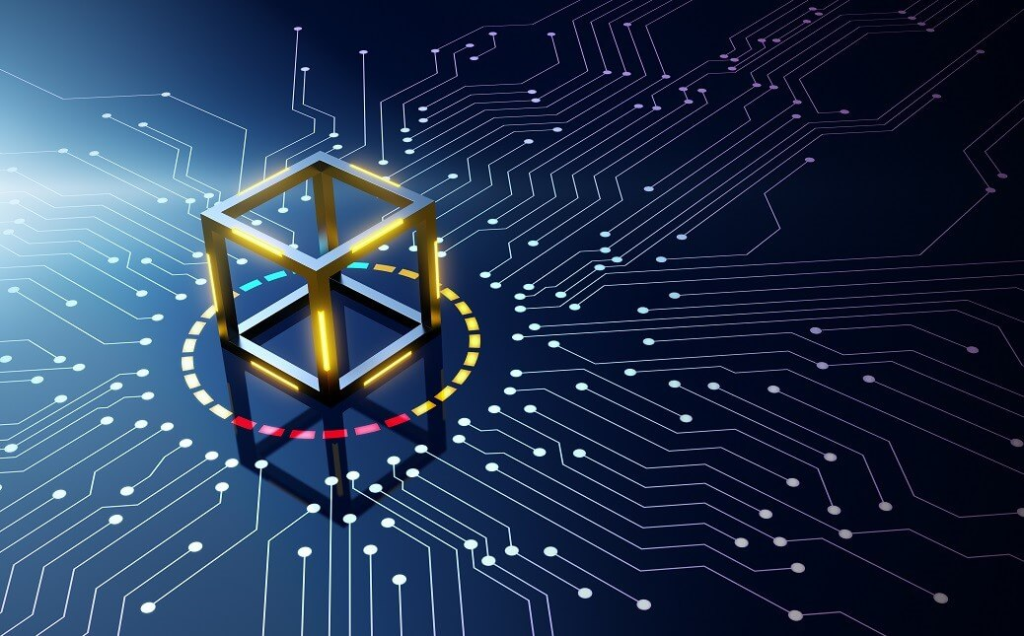Navigating the Crypto Node Ecosystem

Description: Learning more about crypto nodes helps to comprehend the world of blockchain and understand better how to use the technology for building crypto-enabled applications. Dive into this domain with GetBlock.
Text:
If you’re transacting cryptocurrency or interacting with a decentralized application (dApp), you’re in fact talking to nodes. Since blockchain nodes power every use case in the crypto space, both Web3 developers and digital asset users can benefit by learning more about them.
What are blockchain nodes?
Blockchain is often defined as a distributed ledger and what is implied by that is it consists of groups of computers that in fact perform all the work for the underlying network.
The work crypto nodes perform can be divided into two groups:
- Data storage and verification: nodes work in tandem to check the legitimacy of every transaction and smart contract call and cache the details;
- Synchronization and communication: upon verification, nodes share the operation records with every other computer on the network to ensure each of them has a full database. Apart from that, all the software that runs on the blockchain communicates with nodes to get the necessary information and to be able to send requests to the ledger.
Simply put, these devices are powering every instance of users and developers addressing blockchain.
Types of crypto nodes
Establishing well-coordinated functioning of hundreds and thousands of servers is not an easy task. Therefore, various blockchains have differing approaches to nodes in the way they coordinate to validate transactions and classify them differently.
Accordingly, certain classes of nodes typical for the majority of blockchains can be pointed out.
Block-producing
Miners
An integral part of Proof-of-Work networks like Bitcoin, these nodes are responsible for proposing new blocks and filling them with valid transactions, for which they have to apply a considerable amount of computing resources. In return, successful miners get rewarded for their input.
Validators
Replace mining nodes in Proof-of-Stake systems like Ethereum or Cardano, where instead of contributing computational power users lock up their tokens native to the chain they’re securing. Amounts to stake are often high enough to minimize the risks of cheating.
Non-block-producing
Full nodes
When we talk about blockchain nodes, this type is often what is considered a proper node. They relay data from one server to another, communicate to Web3 applications, and store the records of every operation that has ever reached the network.
Light nodes
Save outlined data and therefore do not require as many computational resources as other types. Due to a resource-efficient approach, these can be maintained on mobile devices, however, they have to connect to full nodes to stay operational.
Archival nodes
Some blockchains require full nodes to only host n amount of blocks instead of the whole history. This is where archive nodes will back up the network and offer explicit information from the very first day of network activity.
RPC nodes
Any node with the ability to receive Remote Procedure Call requests and respond to them. The main purpose of these servers is to allow decentralized applications to receive data from the blockchain and write to the ledger. With RPC nodes crypto projects do not need to maintain a node to communicate with Bitcoin, Ethereum, or other networks.

Accelerate the Web3 development with GetBlock’s RPCs
The endpoint of RPC is the URL address of the blockchain server that receives remote requests. Public RPCs are open-access to everyone, free to use, and can usually be found on developer websites; therefore, the traffic is overloaded. This type is suitable for individual use or for testing purposes.
Private endpoints are usually offered by services running crypto nodes for clients to use. They offer top-notch accessibility and scalability, perfect for launching highly productive applications.
GetBlock is one of the most used platforms that host RPC nodes to over 50 protocols and offer access to their infrastructure to developers and traders. With the help of GetBlock, developers can build applications on Bitcoin, Ethereum, Polygon, Tron, and many other chains without spending tons of resources on spinning up dedicated nodes.
The service users get high-quality customer support, 40,000 free requests to test out the work of the platform, and extensive API tooling to launch crypto products in the shortest time.
Conclusion
Navigating the world of blockchain nodes can lead users to the deepest depth and yet is necessary to master the crypto sector and start building products and services on it. Everyone can eventually run a node and enter the space. However, if you’re short of resources or puzzled by the complexity of the process, RPC node providers are always there to aid.
Research Snipers is currently covering all technology news including Google, Apple, Android, Xiaomi, Huawei, Samsung News, and More. Research Snipers has decade of experience in breaking technology news, covering latest trends in tech news, and recent developments.












